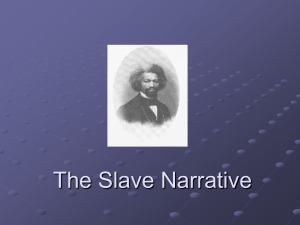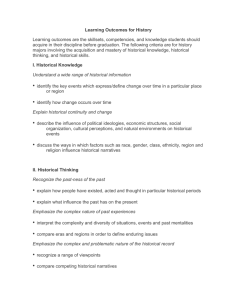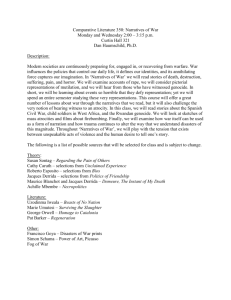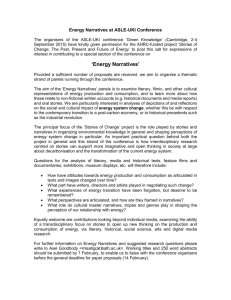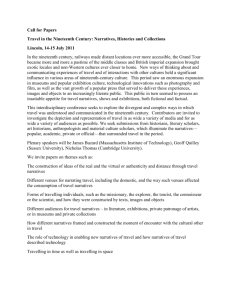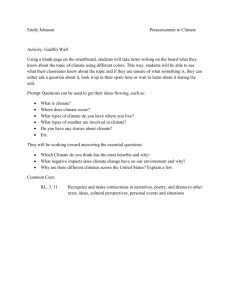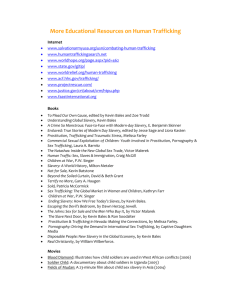Book Review - Eden.Rutgers.edu
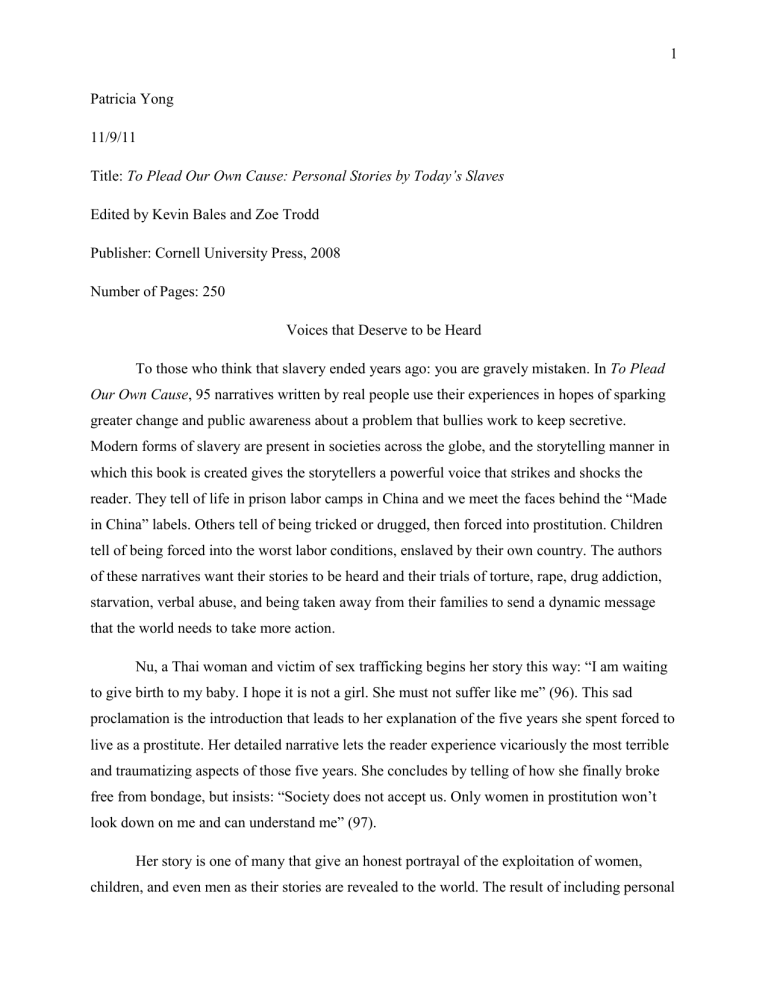
Patricia Yong
11/9/11
Title: To Plead Our Own Cause: Personal Stories by Today’s Slaves
Edited by Kevin Bales and Zoe Trodd
Publisher: Cornell University Press, 2008
Number of Pages: 250
Voices that Deserve to be Heard
To those who think that slavery ended years ago: you are gravely mistaken. In To Plead
Our Own Cause , 95 narratives written by real people use their experiences in hopes of sparking greater change and public awareness about a problem that bullies work to keep secretive.
Modern forms of slavery are present in societies across the globe, and the storytelling manner in which this book is created gives the storytellers a powerful voice that strikes and shocks the reader. They tell of life in prison labor camps in China and we meet the faces behind the “Made in China” labels. Others tell of being tricked or drugged, then forced into prostitution. Children tell of being forced into the worst labor conditions, enslaved by their own country. The authors of these narratives want their stories to be heard and their trials of torture, rape, drug addiction, starvation, verbal abuse, and being taken away from their families to send a dynamic message that the world needs to take more action.
Nu, a Thai woman and victim of sex trafficking begins her story this way: “I am waiting to give birth to my baby. I hope it is not a girl. She must not suffer like me” (96). This sad proclamation is the introduction that leads to her explanation of the five years she spent forced to live as a prostitute. Her detailed narrative lets the reader experience vicariously the most terrible and traumatizing aspects of those five years. She concludes by telling of how she finally broke free from bondage, but insists: “Society does not accept us. Only women in prostitution won’t look down on me and can understand me” (97).
Her story is one of many that give an honest portrayal of the exploitation of women, children, and even men as their stories are revealed to the world. The result of including personal
1
narratives in this book is so that the perspectives of these survivors can bring you on a whirlwind journey through unimaginable pain and frustration, and ultimately deliver vivid and heartwrenching narratives about cruel enslavement. This unique representation ultimately serves the purpose of the book very well.
2
The scope of the stories depicted in this book are immense and the details derailing. It succeeds impressively in translating these stories as a global issue by representing several locations. The narrators of these stories are from Sudan, Russia, China, India, Thailand, and more, and we can see that even countries, the United States, with abundant human rights laws can have forms of slavery that exist. This rich collection of stories really drives their message into the reader, and we can see that it is not just one or two people going through these awful experiences, but hundreds of thousands. Some storytellers use the word “we” to group themselves with others who suffered a similar fate. One woman calls herself “Maria,” stating
“There are many Marias like I am, and that is the reason to bring this story into daylight—to stop
‘Maria’s Story’ from happening again” (49).
The book is well organized into sections devoted to giving a voice to those enslaved in labor camps, children forced into labor, women victimized through sex trafficking, and much more. Before each group of narratives is an introduction that gives the reader some background or history relevant to the next few narratives. This gives more of a context, and increases reader understanding of the situation.
Following the collection of stories about modern slave experiences and the dynamics of gender in slavery, a series of narratives are included in a section that depicts the turning point where freedom is achieved. In these stories, raw determination resonates as a powerful theme for many former slaves. At the same time, there are also several narratives that tell of a sheer inability to find liberation, of being trapped in the worst kinds of inescapable circumstances. The inclusion of these stories is imperative in helping readers realize that the necessary help and persecution of evil are not always materialized. Efforts to stop and prevent these conditions from happening need to be more aggressive and widespread.
The book also includes a section that addresses the problems of freedom. These narratives are instrumental in showing the reader that although some individuals were able to
escape from a life of enslavement, they must deal with problems that will affect them for the rest of their lives, including an inability to connect with society, as well as being unable to forget their traumas. All of this indicates to us as readers that beyond providing stronger measures for eliminating human trafficking and slavery, there is also a great need for protection and aid beyond offering freedom.
3
The stories included in this book are written by the people who experienced them, but it was the editors of the book, Kevin Bales, an expert on modern slavery, and Zoe Trodd, an
English professor at Columbia University, who were able to collect and organize and them in a way that make them unique contributions and extremely purposeful. Readers of this book will undoubtedly be moved and inspired by these stories. The world needs to realize that this book serves as a call to action and initiation of a worldwide effort to improve conditions. There is so much to be done, preventive measures to be taken, and education to be spread about the issues of trafficking and modern slavery. As Ruth from Liberia concludes her story, she tells of relating her past experience as a victim of human trafficking in villages and schools, and stresses, “It is happening. I am hoping that this thing will come to a stop. We are ready to fight what is going on now” (245). Her story, as well as others in this book, inspires us to speak out against trafficking and make a change.
Word Count: 972
Representative Quotes:
From Rama (India, 2004)
“I was in the village when a man came and offered food, clothing, shelter, money. My parents sent me even though I didn’t want to come. I didn’t knw what was happening to me—where I would land up. I was very scared. The journey took a long time. I didn’t know how to weave, taught by being beaten up repeatedly—they beat me up each time I made a mistake. I was beaten with the wooden portion of the knife. I wasn’t allowed to play outside and had no friends. The food was really bad, stale and two-days old. I didn’t like it at all. I always had hope that I would
be rescued, but nobody came while I was there. Once I got a call from father. He asked if I was alright. I lied and said I was OK. I didn’t want my father to worry about me” (73).
4
From Dina (Cambodia, 1999)
“After all of these years I now work as a sex worker. I also run a union to unite sex workers to fight for basic rights and for freedom. We bring our voices to forums like this to educate people like you, with the hope you can learn from us. Many of my sisters are scared to join our struggle because they live in constant fear of abuse and threats. Some of you think that I am bad because I choose to remain a sex worker. My answer to those people is: I think your society, my society, my motherland, Cambodia, is bad because it does not give girls like me choices, choices that I see are better for me. I think it is bad that my country allows men to rape young women like me and my sisters and go unpunished. I think it is bad that my society lets men seek and demand the services of women like me . . . Because why? Because they have a powerful relative, because they have money. Is this right? Is this justice?” (106).
From Maria (Itlay, France, and Netherlands, 2002)
“I’ll call myself Maria in this story. This is a real story about my life, and I am not the only one who could named that name. There are many Marias like I am, and that is the reason to bring this story to daylight—to stop ‘Maria’s Story’ from happening again. I come from a little village in
Albania where my parents and my sisters still live. They probably think I am dead, and I hope so.
It is easier than the truth—I have done things they can never imagine. I shall never see them again.”
Bales, Kevin, and Zoe Trodd. To Plead Our Own Cause: Personal Stories by Today's Slaves .
Ithaca: Cornell UP, 2008. Print.

